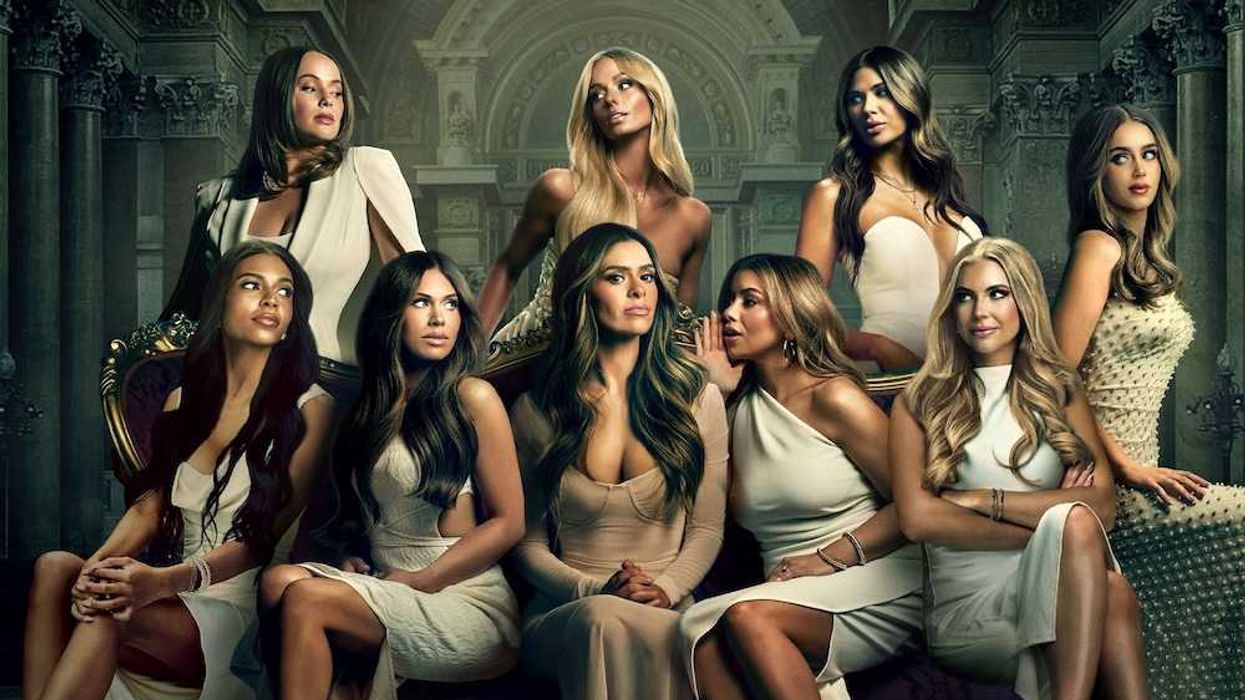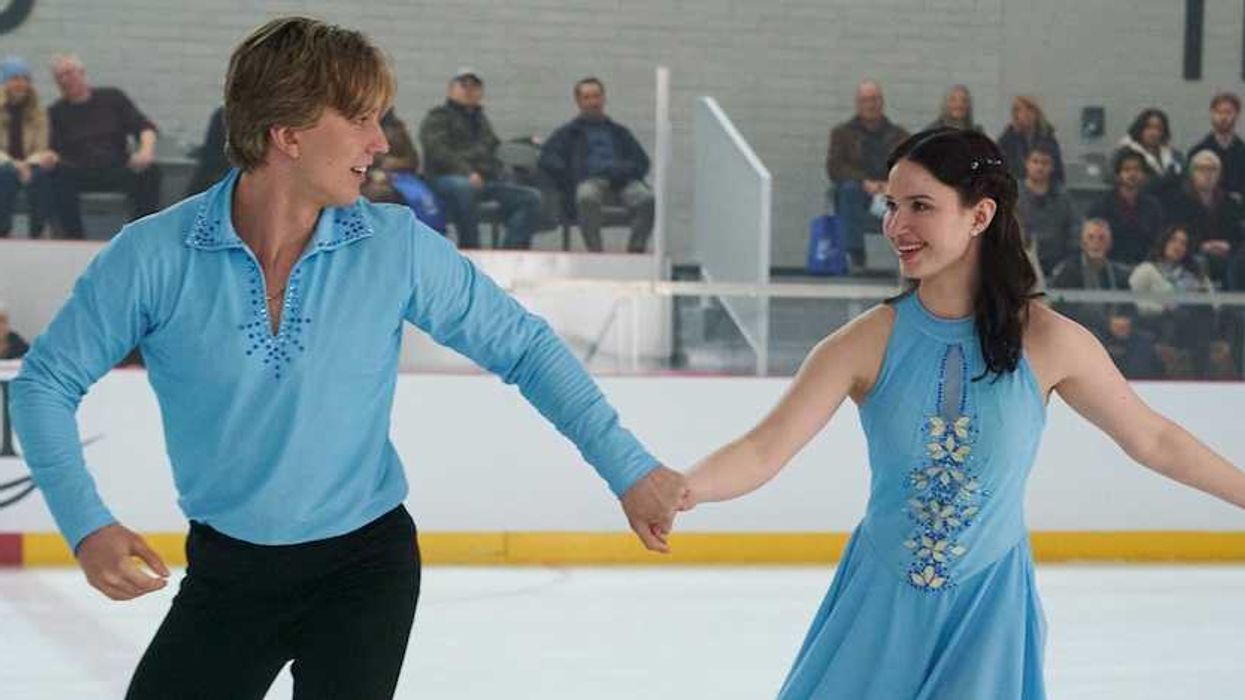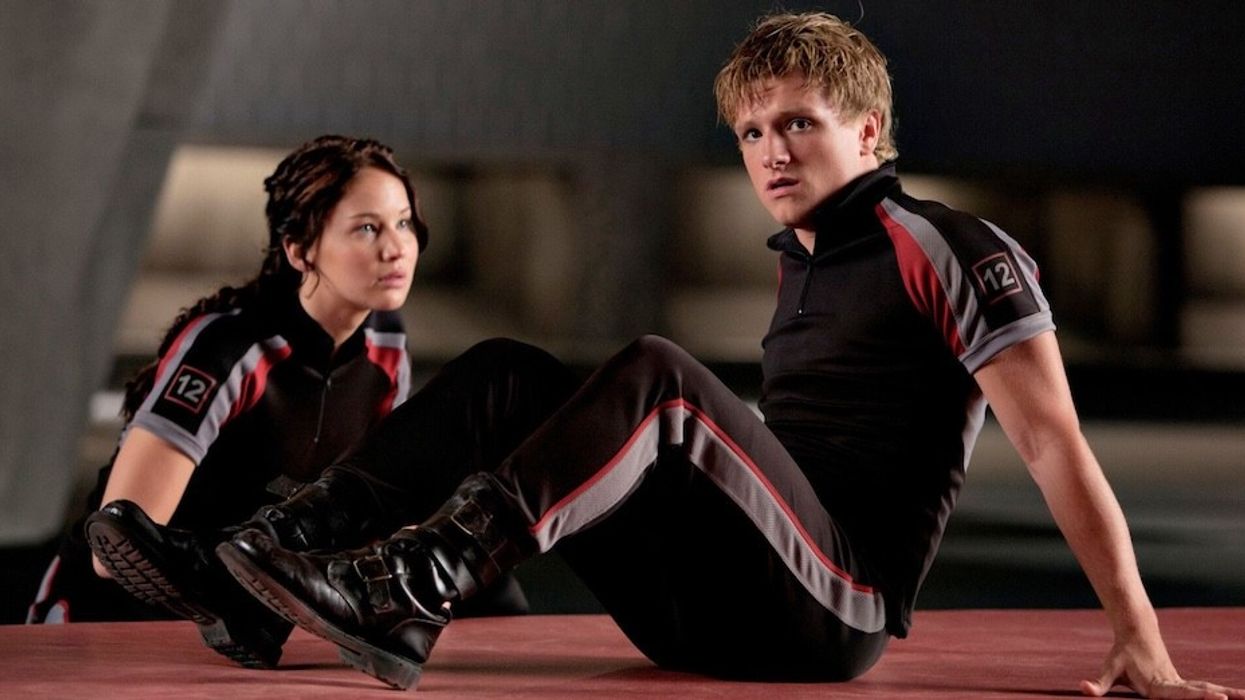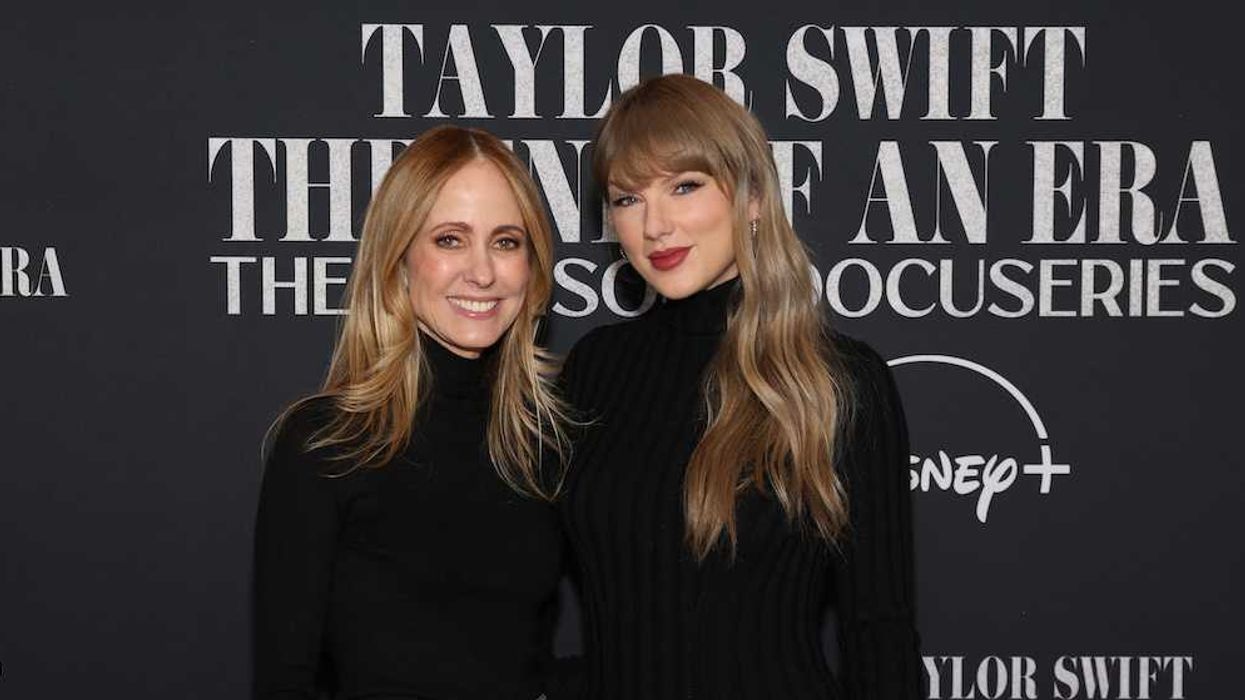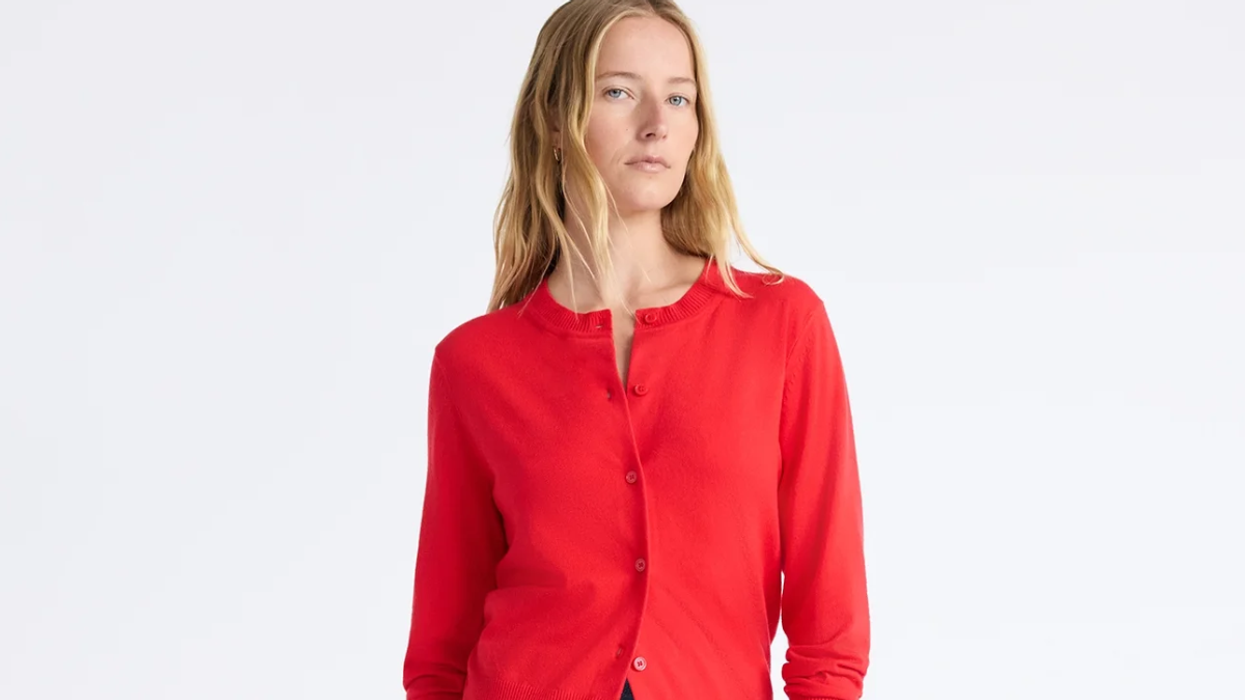The film explores love in all its forms, and doesn't shy away from how messy that can be.
"Your Place Or Mine" Breaks The First Rule Of Rom Coms — And It Makes The Movie Better

Chloe Williams serves as B+C’s Entertainment Editor and resident Taylor Swift expert. Whether she’s writing a movie review or interviewing the stars of the latest hit show, Chloe loves exploring why stories inspire us. You can see her work published in BuzzFeed, Coastal Review, and North Beach Sun. When she’s not writing, Chloe’s probably watching a Marvel movie with a cherry coke or texting her sister about the latest celebrity news. Say hi at @thechloewilliams on Insta and @popculturechlo on Twitter!
In an age of single Valentine's Day adventures and Galentine's Day brunches, it's more important than ever to see love in all its forms (romantic, platonic, and self-affirming) on our screens. And that's the precise reason why I was pleasantly surprised by Netflix's new flick Your Place or Mine. After a few less-then-enjoyable movie nights over the winter, this new rom-com absolutely enchanted me.

Images via Erin Simkin / Netflix
Your Place or Mine follows best friends Peter (Ashton Kutcher) and Debbie (Reese Witherspoon) as they pull a house swap à la The Holiday, with Debbie staying at Peter's place in New York to finish an accounting program and Peter watching Debbie's son Jack in LA. The film is a refreshingly new take on rom-coms because of one unexpected detail: the romantic leads spend the entire film apart.
Normally when you're watching a rom-com, that is something you definitely don't want because you wouldn't get all of the tension and buildup that makes for a satisfying ending. But in this case, Peter and Debbie have known each other for so long (and have such established lives) that seeing them on their own made me even more excited for their reunion.
Throughout the overarching plot, there are multiple interconnected stories that make the film feel rich with storytelling and also serve as a reminder that as focused as we are on our own lives, everyone else has dreams, stressors, and loves that are equally as important to them.

Image via Erin Simkin/Netflix
The characters go off on adventures that spark character development — Minka and Debbie, Jack and Peter, Debbie and Theo, Peter and Alicia — and thanks to the chemistry between all of the duos, those individual arcs almost make for a better story than Debbie and Peter's relationship.
While waiting for Debbie and Peter to realize they're in love with each other (friends to lovers fans rejoice!!), I was really taken by the relationships that developed between the other characters. The friendships inspired me because, just like friendships in the real world, they're multidimensional. Minka pushes straight-laced Debbie outside her comfort zone, but doesn't let her take the risks alone, while Alicia gives Peter the nudge, and the listening ear, that he needs to figure out what he wants.
As important as those friendships are, the film also speaks volumes about reaching the point when the rose-colored glasses come off and you have to make a decision that could change the rest of your life.
Peter spends the entire film defending his choice to move away from LA (citing his fear of earthquakes as the cause). But when Jack points out during one of their heart-to-hearts that the idea of not being with Debbie makes him look like he's just experienced an earthquake, Peter finally realizes what we've known the whole time: he's more afraid of not being with her at all than he is of being rejected...or literally anything else.
It's an on-the-nose reminder that the things we're afraid of manifest themselves in different ways, but at their core, they point back to the people and dreams that matter most to us. Debbie controls just about every aspect of Jack's life, and Peter hides a novel that he's secretly written, because they're both so afraid of a potential negative outcome that they don't feel any freedom in those areas.
There's even a subtle theme of how we can process our emotions and turn the pain in our lives into art when we learn Peter's novel discusses the nature of feeling disconnected with yourself after a tragedy.
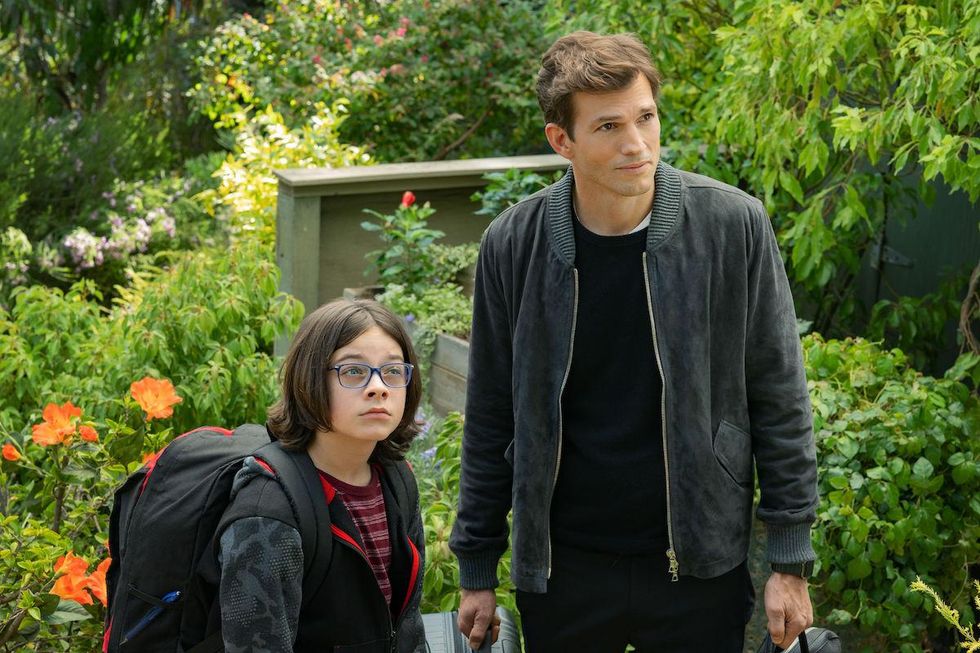
Image via Erin Simkin/Netflix
Teenage Jack has his own coming-of-age story as he's experiencing freedom for the first time in a long time thanks to Peter. He tries out for hockey and skips homework to watch a scary movie (both against Debbie's wishes). While I'm definitely not endorsing the fact that Peter goes behind Debbie's back, it allows Jack to realize what he want his life to look like and to grow the confidence to ask for it — a confidence that transfers to Peter and Debbie, who finally become a published author and an editor (respectively) when they get married.
All of these interconnected themes about life, loss, and dreams serve as a good reminder just how many aspects of life can be romantic, like finding the perfect bouquet of flowers for your windowsill or listening to your best friend talk about their passion with stars in their eyes. As romantic as the movie is, it's also definitely a comedy.
Peter tries a new nickname for Jack every time he sees him, and the natural banter between the characters shows that the script has a smart sweetness that I've been missing in recent films. The humor lands almost every time (a few of their millennial jokes don't quite translate), and overlay text that pokes fun at early 00's fashion choices at the beginning and assures us that Debbie and Peter have a good life before the credits roll bookends the film with heartwarming humor.
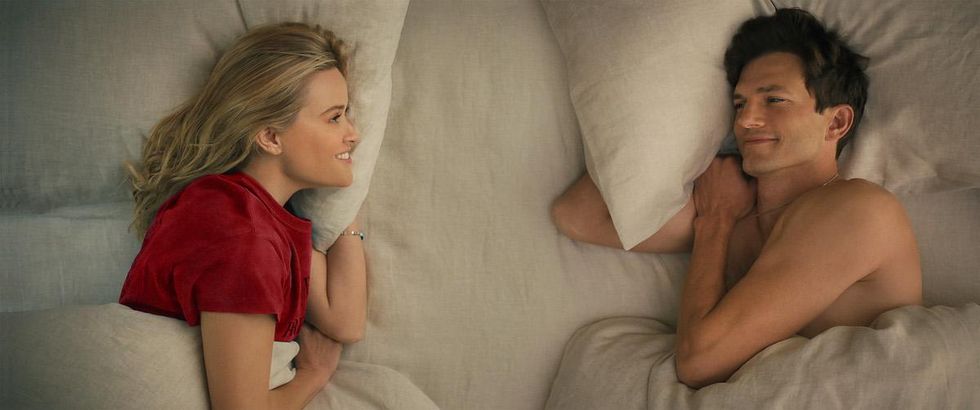
Image via Netflix
The parallels between the romantic love and the platonic love can be summed up in the question "what happens next?" which is phrased multiple times throughout the film. First from Peter's girlfriend (who dumps him), then from Jack, then from Debbie. Adding this to each act of the movie shows that all kinds of love are important parts of a full life — especially since both Peter and I were sadder at the idea of saying goodbye to Jack than to Peter's girlfriend.
Thankfully, the movie doesn't end with a goodbye. It does end, however, in another one of my favorite rom-com tropes: the airport scene. You know the one — after a big misunderstanding, one character leaves to fly back home, while the other finally realizes they can't live without them. Then, that character somehow runs all the way to the gate without a ticket or waiting for security.
This is another scene where Your Place or Mine stands out. Debbie and Peter aren't chasing each other down (in fact, it would have been easy for them to miss each other), and instead of having a carefree, over-the-top declaration of love, their conversation revolves around the secrets that have come out of the woodwork.
They've both meddled with each other's most important thing — Jack got injured after Peter let him try out for hockey and Debbie secretly published Peter's book — and it comes to a head as they're walking the wrong way on the moving walkways. They've let each other down, and it leads to a huge fight.
They say genuinely mean things to each other that are truly distressing to watch, and you can see how much their words hurt each other. But that pain also shows Debbie and Peter just how much they love each other. It makes their declaration of love even more meaningful because when we love someone, even when we hurt them, we're willing to fight tooth and nail to help the relationship survive.
Your Place or Mine is a funny, heartwarming, and complicated look at love that holds its own against the rom-coms of years past. I can't wait to see how it influences the rom-coms of the future.
Did you enjoy Your Place or Mine? Let us know your thoughts on Twitter and check out our Movies page for more think pieces and stories about your favorite films.




